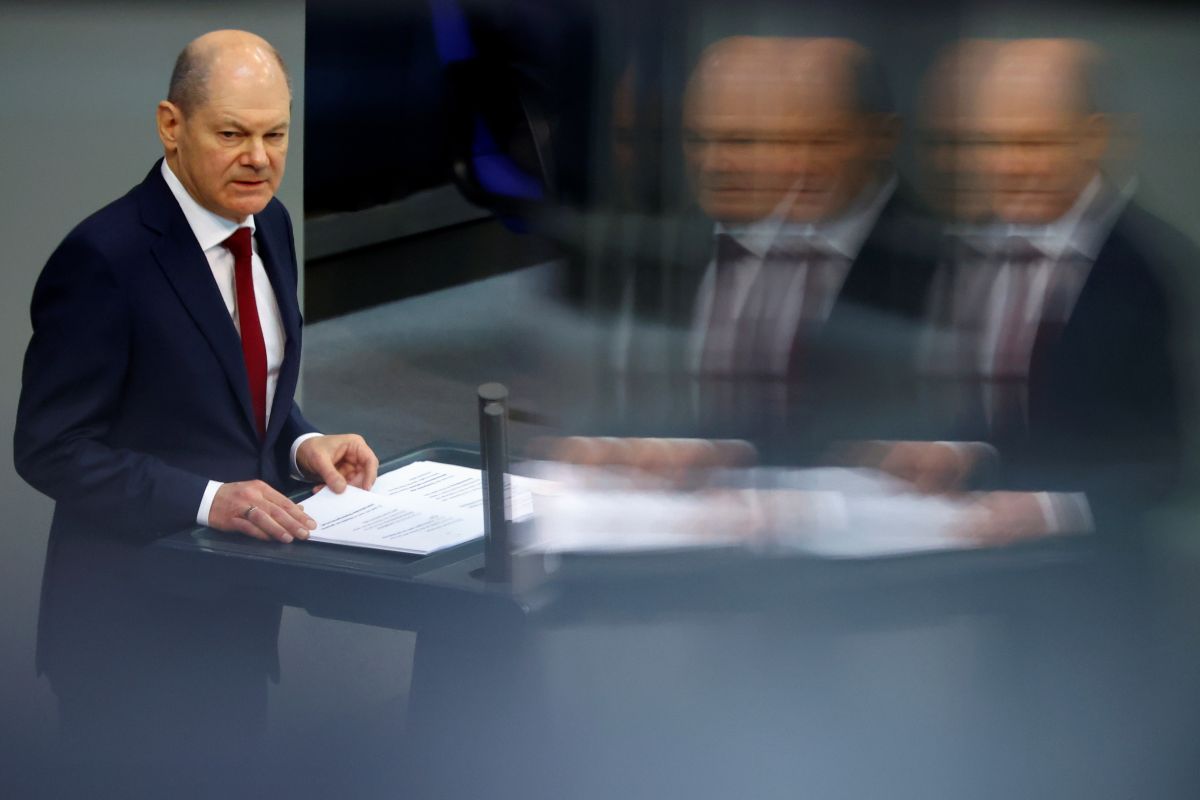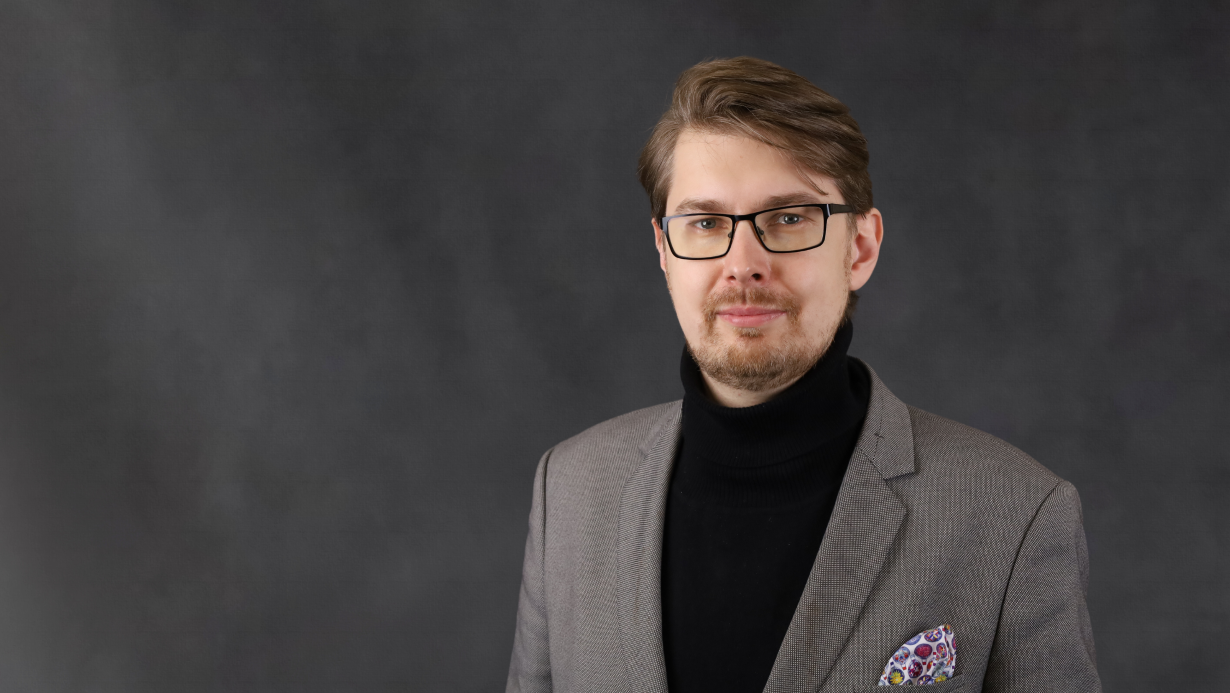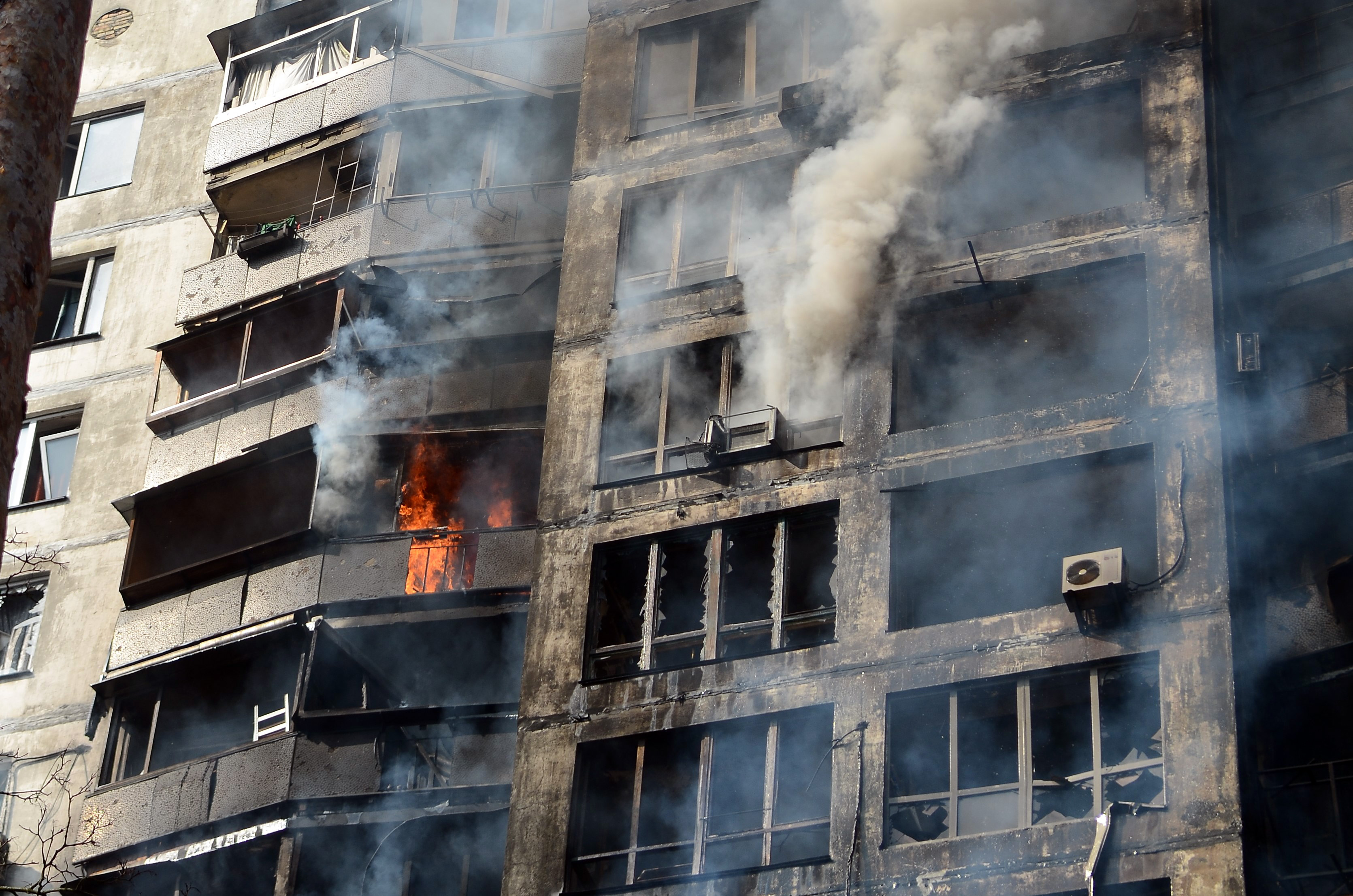Germany's Defence Policy Changes after Russia's Invasion of Ukraine
The increase in defence spending announced by Germany Chancellor Olaf Scholz after Russia’s latest attack on Ukraine began in February marks a turn in German policy. Making up for years of neglect, including through new purchases for the Bundeswehr, is to be a priority. The creation of a special fund for the armed forces will require negotiations within the governing coalition and a compromise with the opposition CDU. Military bureaucracy may also be a factor slowing the modernisation of the armed forces.
 FABRIZIO BENSCH/Reuters/Forum
FABRIZIO BENSCH/Reuters/Forum
At an extraordinary session of the Bundestag on 27 February, Chancellor Scholz stated that Russia’s aggression against Ukraine had opened a new era in the history of Europe. In addition to the diversification of energy supplies, a significant increase in military spending is to be one of the elements of the announced changes.
German Defence Policy before 2022.
Since 2014 and the Russian annexation of Crimea, the level of German defence spending has risen, although only from 1.1% to 1.5% of GDP, remaining well below the 2% of GDP target for NATO members. This situation has been the subject of criticism from the U.S., most vociferously expressed during President Donald Trump’s term. Despite Germany’s failure to meet the 2% of GDP commitment, spending in real figures was high, given its economic power. According to NATO estimates, Germany spent $52 billion dollars on defence in 2021, second only to the UK ($69 billion,) and the U.S. ($725 billion). A major problem for Germany, however, was the distorted structure of the spending. Between 2014 and 2019, only 12-14% of the German defence budget was allocated to investment. Last year, it was 18.5%, which, remains below the NATO-recommended threshold of 20%. In recent years, almost half of the Bundeswehr’s spending has been for personnel costs. Austerity and mismanagement have had a negative impact on the technical condition of equipment. At the end of 2021, only 40% of the country’s Tiger combat helicopters and 65% of its Puma infantry combat vehicles were technically operational. The Bundeswehr is also struggling with personnel problems. Around 20,000 officer and non-commissioned officer posts remain vacant. Due to the pacifism rooted in modern German society, successive Bundeswehr recruitment campaigns have not generated interest in a career in the military.
Changes Announced by Chancellor Scholz and the First Decisions.
On 27 February, the German Chancellor announced his plan to create and include in the constitution a special €100 billion fund for the Bundeswehr. This sum will then be exempted from the “budgetary brake”. In the following years, defence spending, including this fund, is to be no less than 2% of GDP, as declared by the NATO countries. The projected German outlays would reach about €75 billion annually, which would make them the largest in Europe and the third largest in the world, after the U.S. and China. However, it should be remembered that the special fund is an emergency and one-time project aimed at restoring the capabilities of the German armed forces.
Part of the planned €100 billion will be spent on supplemental purchases, to a large extent from German companies, consisting of stocks of ammunition and spare parts and providing soldiers with necessary equipment, such as body armour. German industry is more than capable, proven by the fact that Germany is the world’s fourth-largest arms exporter. On 14 March, Defence Minister Christine Lambrecht announced the purchase for the Luftwaffe of F-35 aircraft capable of carrying American nuclear bombs as part of the “nuclear sharing” programme. The purchase was previously included in the coalition agreement, but the swift move is part of a new approach to defence and underscores the importance of the decisions made in late February. The Luftwaffe also will receive 15 new Eurofighters. The full catalogue of equipment purchases is currently being developed by the defence ministry in cooperation with the Bundeswehr command. Among the expected purchases are transport helicopters, communication systems, and the development of missile defences.
The second pillar of the planned changes, apart from the purchase of equipment already available on the market, will be the development of long-term European projects such as the German-French-Spanish sixth-generation fighter (for more about the government’s plans from the beginning of this year and the French pressure, see https://www.pism.pl/publikacje/podejscie-nowego-rzadu-niemiec-do-udzialu-rfn-w-odstraszaniu-jadrowym-nato), a German-French advanced generation tank, and the Eurodrone combat UAV. Apart from emphasising the role of cooperation with France and other countries, these moves are intended to ensure the inflow of new technologies and profits for German industry. Balancing urgent purchases with long-term European projects will be a feature of German defence policy in the following years.
The procurement bureaucracy remains a factor that may delay the plans to strengthen the Bundeswehr. In previous years, the Federal Office of Bundeswehr Equipment, Information, Technology and In-Service Support, which is responsible for procurement, was accused by media and politicians of delays of many years in the implementation of projects and of mismanagement. Simplifying procedures and reforming the administration will be a challenge for the Federal Ministry of Defence.
The Political Dimension of the Changes.
Chancellor Scholz announced his programme to increase defence spending without any prior broad consultation with his party base. SPD politicians from the left-wing DL 21 group who are a part of the social-democratic faction in the Bundestag are against the increased spending on the armed forces. Rolf Mützenich, leader of the SPD faction, holds an ambivalent position. He advocates strengthening the armed forces but is against permanent increases in spending. The Greens are proposing to extend the fund’s catalogue of expenditures to include humanitarian aid and cybersecurity projects. The head of government can count on support from the FDP. The lack of unity within the coalition and, in the most pessimistic scenario, the collapse of the entire fund project, would be a political and prestige failure for Chancellor Scholz.
The idea of a special fund for the Bundeswehr and its inclusion in the constitution require a two-thirds majority, for which agreement with the CDU is necessary. The Christian Democrats initially declared their support, but they are demanding that the funds be allocated solely for equipment for the army and greater control over spending. Political negotiations concerning the fund, the timing of which is unknown, may last a long time and delay the modernisation of the army. The shape of a possible compromise, which would require reconciling the contradictory demands of the Greens and the CDU, remains an open question. However, given the importance of the issue and the international context of the war in Ukraine, neither party will be interested in breaking up the talks.
The government’s plans are part of a change in public opinion following Russia’s attack on Ukraine. According to a YouGov survey carried out on 2 March, 63% of respondents supported the creation of a special fund to strengthen the Bundeswehr. According to a Deutschland Trend poll for the ARD channel, 69% of respondents support defence spending of 2% of GDP annually, including majorities of voters for the SPD, FDP and CDU (82%), the Greens (68%) and the AfD (51%). Only Die Linke voters (42%) remain against. With reports of Russian atrocities, this pro-defence spending sentiment is likely to grow stronger. A decline in support could be influenced by a possible quick announcement of a ceasefire in Ukraine and a reduced perception of a threat from Russia.
The Alliance Dimension of the German Transition.
Since the beginning of the war in Ukraine, the government in Berlin has been emphasising solidarity with its allies and its readiness to defend NATO’s Eastern Flank. These statements are a signal to Russia and are intended to support the countries of Central and Eastern Europe. They may also be seen as an attempt to improve Germany’s image in the face of its failure in eastern policy.
Germany is the framework state for the NATO Battalion Battle Group in Lithuania and will be the framework state of the newly established battle group in Slovakia. Assuring its European partners of Germany’s support, Minister Lambrecht declared that in 2025, 1,500 German soldiers will be part of the EU Rapid Reaction Force (EU RDC) envisaged in the Union’s Strategic Compass.
Conclusions.
The German government’s plans in the sphere of defence announced on 27 February offer a chance to compensate for many years of neglect. However, implementation is only at the preliminary stage and will require overcoming difficulties in the political and administrative spheres. The creation of a special fund for the Bundeswehr will depend on Chancellor Scholz’s ability to consolidate the governing coalition and to reach agreement with the opposition CDU. In the most pessimistic scenario, the resistance of some social democrats may paralyse the works on the fund. Negotiations on the fund may take many months. Reform of the military bureaucracy also will be required.
If the intentions of Chancellor Scholz’s government are fulfilled, an improvement can be expected in Germany’s relations with the U.S., which has long been calling on the Europeans to take greater responsibility for their own security. This would have a beneficial effect on increasing NATO’s defence potential and on the security of Poland and the entire Eastern Flank of the Alliance.




